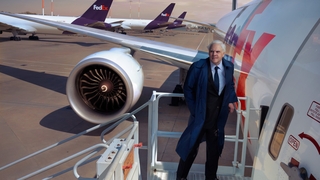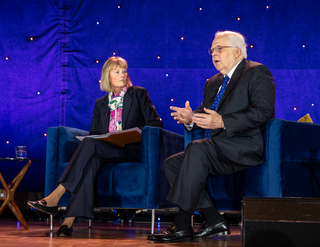Frederick W. “Fred” Smith ’66, the founder and long-time chair of the FedEx Corporation, passed away on June 21, 2025. Smith is remembered as a passionate supporter of Yale and as the champion of a groundbreaking partnership with FedEx that established the Yale Center for Natural Carbon Capture (YCNCC).
Launched in 2021 with a transformative gift from FedEx, YCNCC aims to mitigate climate change by leveraging natural processes that remove excess carbon from the atmosphere and offer meaningful social and ecological co-benefits. The Center builds on Smith’s passion for scientific research and his vision for collaboration between researchers and the aviation industry. Today, YCNCC supports dozens of researchers across three major areas of focus that span departments and schools at Yale to mitigate climate change—a mission that continues to expand with a laser focus on catalyzing real-world impact at scale.
“Fred Smith’s enthusiasm for the Yale Center for Natural Carbon Capture was infectious,” said Indy Burke, the Carl W. Knobloch, Jr. Dean of the Yale School of the Environment. “He understood how much CO2 the aviation industry produces, and that a multi-pronged approach utilizing a variety of natural solutions strategies would be needed to offset the harmful effects in a timely manner. Thanks to his vision and the support of others at FedEx, YCNCC’s dream team of researchers is now a reality.”
As aviation’s contribution to climate change became clear, Smith felt that FedEx should take a leading role in leveraging the transportation industry to be part of the solution. He strongly believed that partnerships between academia and industry offered the best way to bring science-based solutions to scale, and he worked tirelessly to facilitate ties among university researchers, FedEx, and other leaders in the field of aviation.

